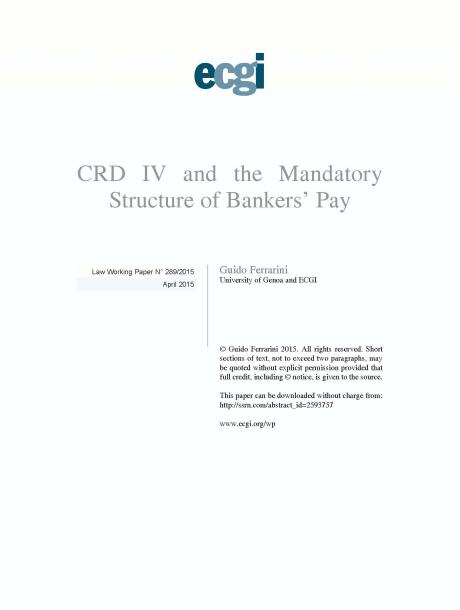
CRD IV and the Mandatory Structure of Bankers? Pay
Abstract
In this paper, I analyse the rise of mandatory structure of bankers? pay in Europe as outcome of criticism of pre-crisis remuneration practices at financial institutions. Whether flawed bankers? pay contributed to the financial crisis is still debated amongst scholars. It appears more likely that insufficient prudential regulation and flawed risk management contributed to banks? undertaking risks that were later proven to be excessive from a societal perspective. All this would have suggested improving risk management systems and reforming areas of prudential regulation such as capital adequacy and organizational requirements, rather than intervening directly on bankers? incentives. Nonetheless, governments and legislators, under the pressure of the media and public opinion, proceeded to extensive reforms of bankers? remuneration, with reference to both the top executives and other risk-taking/high-earning employees at various levels of the institutions concerned. Indeed, the FSB principles and standards cover not only remuneration governance and disclosure, but also remuneration structures. Both the fixed and the variable remuneration components and the relationship between the same are subject to detailed regulation. As a result, the international standards have nature of ?rules? and have been implemented as such. The EU in particular has followed a strict approach to the implementation of the FSB standards and has also departed from the latter by introducing an unprecedented cap on variable remuneration in CRD IV. I analyse this cap from a legal and economic perspective, showing that its rationale is flawed and that unintended consequences may derive from it as a result. Moreover, the cap is inconsistent with other aspects of CRD IV which incorporate the international standards on variable pay.










